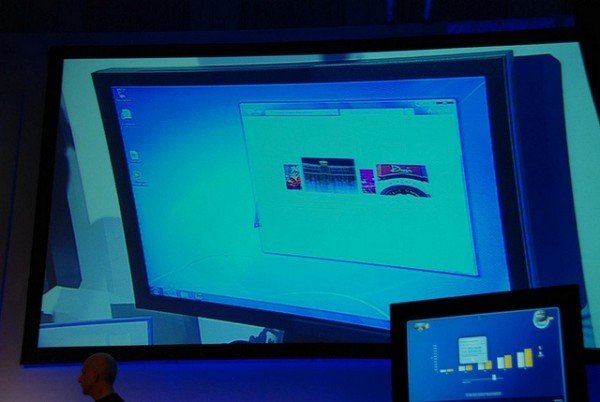Today during a press conference held ahead of CES, Microsoft gave everyone a sneak peek of their next Operating System, Windows 8. The most exciting news is that Windows 8 will support System On a Chip(SOC) architectures including ARM-based systems from partners NVIDIA, Qualcomm and Texas Instruments.
Intel and AMD will continue their work on the lower SOC designs on the x86 architecture that supports Windows fully. This includes support for millions of x86 applications. SOC architectures will greatly increase innovations across the hardware spectrum when coupled with the Windows Platform.

In a conversation between the Microsoft News Center and Steven Sinofsky, President of the Windows and Windows Live Division, when asked asked to give an overview of the announcement and what this means to users, Sinofsky summed it up fairly easy:
We’ve reached a point in technology where everyone really does want everything from their computing experience — the power and breadth of software for today’s laptop, the long battery life and always-on promise of a mobile phone, and the possibilities from a new generation of tablets. Bringing these capabilities together to meet customer demand requires innovation in hardware as well as a flexible, evolving software platform to bring it to life.
So what is SOC and what does it mean to users?
System On a Chip (SOC) refers to integrating all components of a computer or other electronic system into a single integrated circuit (chip). It may contain digital, analog, mixed-signal, and often radio-frequency functions – all on a single chip substrate. A typical application is in the area of embedded systems. This means Windows will run on an architecture , that until now, only Windows Embedded ran on. Support for ARM based architecture will make the operating system much (lighter) in the same fashion Windows Phone 7 runs. Running with this architecture opens many new doors to Windows such as load time, longer battery life for portable units. This will also enable Microsoft to move ahead in a much more functional manner with portable devices like Tablet PC’sSlates and allow them to hopefully produce a iPad competitor.
Source: Microsoft News center
The current internal build is 6.2.7667 and images shown off are believed to be previews of earlier designs believing Microsoft to not want to reveal the full design this early.